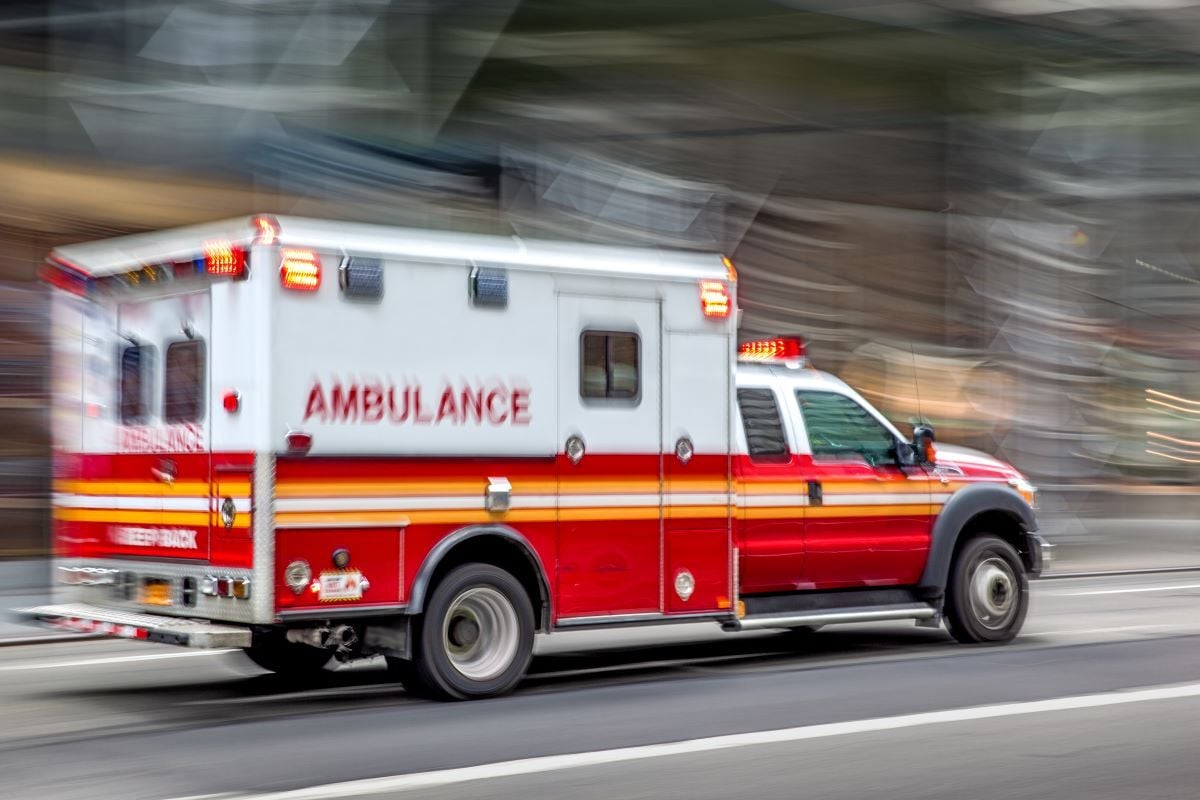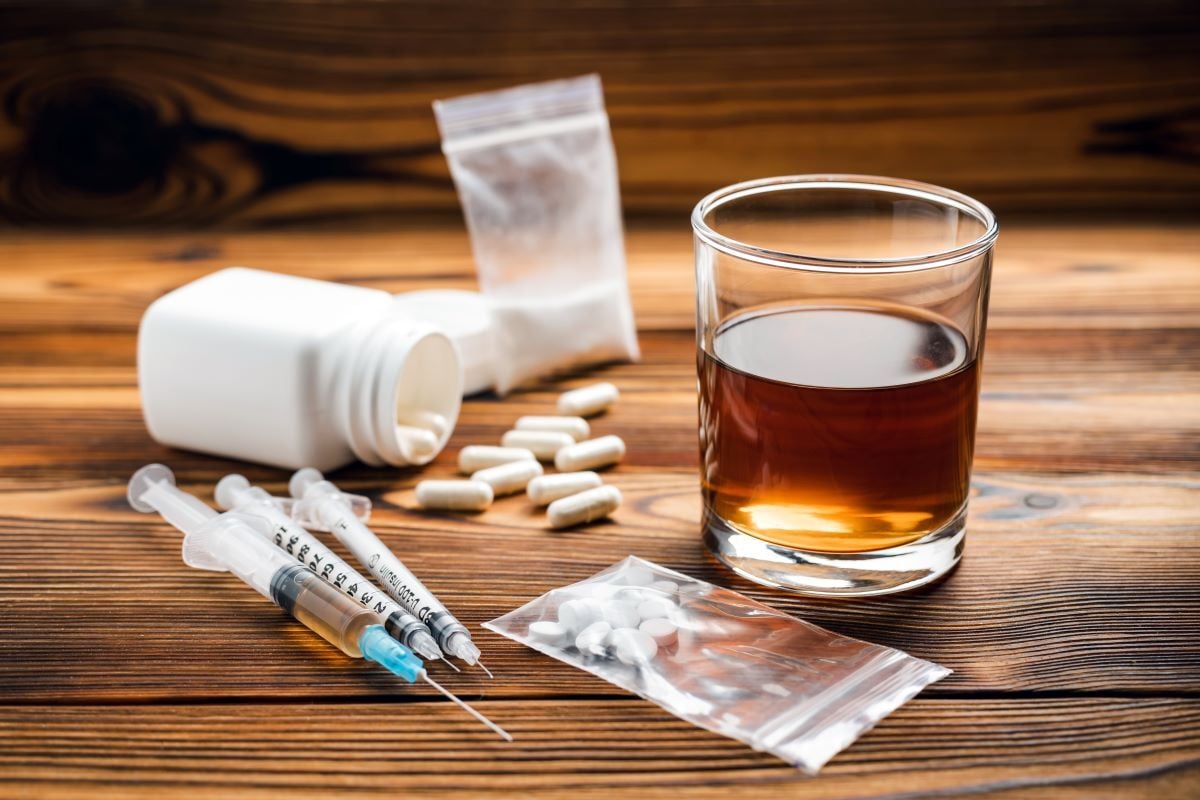It’s not unusual for someone struggling with addiction to find themselves caught between more than one substance. Heroin and alcohol are a particularly risky combination—both depressants, both highly addictive, and both capable of wreaking havoc on the mind and body. One might start drinking to take the edge off of withdrawal, or turn to heroin after alcohol no longer delivers the same high. Either way, the overlap is more common than people realize.
At Avenues Recovery, we’ve seen firsthand how this combination can spiral—but we’ve also seen how, with the right help, people can rebound from it. Let’s explore what makes heroin and alcohol such a dangerous duo, and how recovery is always possible.
Heroin and Alcohol
Heroin and alcohol are two powerful substances that, when used together, create a dangerous and often deadly combination. Both are central nervous system depressants, meaning they slow down brain and body functions — including breathing and heart rate. When combined, their effects can multiply, drastically increasing the risk of overdose, unconsciousness, and death. This mix is especially risky because alcohol can mask the effects of heroin, leading users to take more than intended.
Can I Drink on Heroin?
The short answer? No — and here’s why:
Mixing heroin and alcohol is incredibly dangerous, even in small amounts. Both are central nervous system depressants, meaning they slow down your heart rate, breathing, and brain activity. When taken together, they don’t just add to each other’s effects — they multiply them. This can quickly lead to extreme drowsiness, loss of consciousness, respiratory failure, or even death. Some people think a drink will help “take the edge off” of heroin, or vice versa. Others might drink without thinking too much about the risks. But the combination increases the chance of an overdose dramatically, especially because it’s so easy to misjudge how much is “too much.” Even beyond the immediate physical danger, using heroin and alcohol together can trap someone in a deeper cycle of dependence. One substance fuels the craving for the other, making it harder to stop using either one.

Why is Mixing Alcohol and Heroin Dangerous?
1. Both Are Depressants
Heroin is an opioid, and alcohol is a sedative-hypnotic. While they come from different drug classes, both act as central nervous system (CNS) depressants. This means they slow down functions like heart rate, blood pressure, and — most critically — breathing. When taken together, these effects don’t just add up; they work synergistically and intensify each other. That’s how people can suddenly slip into unconsciousness or stop breathing altogether without realizing they’re in danger.
2. Increased Risk of Overdose
Because both substances affect the brain’s ability to regulate breathing and heart function, combining them significantly raises the risk of respiratory depression — when breathing slows or stops completely. Even if someone is “used to” drinking or using heroin, combining them can easily push the body past its limit. Many fatal overdoses involve multiple substances, with heroin and alcohol being a common and fatal pairing.
3. Impaired Judgment and Coordination
Alcohol on its own already affects decision-making and physical coordination. So does heroin. Someone who’s high on both is more likely to fall, injure themselves, or make dangerous decisions — like using more than they intended. The risk of accidental overdose of heroin nad alcohol skyrockets when clear thinking is impaired.
4. They Mask Each Other’s Effects
In some cases, alcohol can dull the euphoric effects of heroin, leading a person to take more heroin to “feel” it more. In other cases, heroin may dull the sedative effects of alcohol, encouraging someone to drink more. This back-and-forth can quickly spiral into toxic levels of both substances in the body.
5. Worsening Mental Health
Long-term use of either heroin or alcohol can contribute to depression, anxiety, and other mental health issues. When combined, the emotional lows hit even harder. It can feel like there’s no way out. The first step is understanding that the combination is working against you, not for you.

Heroin and Alcohol Side Effects
Mixing heroin and alcohol carries a number of both short and long-term side effects. These include:
Short-Term Side Effects:
In the moment, mixing heroin and alcohol can cause:
- Extreme drowsiness
- Slowed or irregular breathing
- Nausea and vomiting
- Confusion or disorientation
- Dizziness or loss of coordination
- Unconsciousness
Long-Term Side Effects:
When someone mixes heroin and alcohol over time, the damage becomes even more serious. Common long-term side effects include:
- Liver damage or failure
- Heart and lung complications
- Cognitive decline
- Increased risk of addiction
- Worsening mental health
Heroin and Alcohol Overdose Symptoms 
One of the most critical signs of an overdose is slow or stopped breathing. A person may appear to be gasping, breathing very shallowly, or not breathing at all. You might also notice that their lips, fingertips, or skin are turning blue or pale, a clear sign that the body is not receiving enough oxygen. Unresponsiveness is another major red flag. If someone is unconscious and doesn’t stir when you shake them, shout their name, or cause some pain (like rubbing their sternum), call 911 immediately. Some individuals may make gurgling or choking sounds — especially if they’ve vomited and are lying on their back — which can indicate a blocked airway. Their skin may also feel cold and clammy to the touch, and their heart rate might be dangerously slow or weak. In some cases, an overdose can even lead to seizures or convulsions, especially when the body is severely deprived of oxygen.

If you ever suspect someone is experiencing an overdose from heroin and alcohol, don’t wait. Call for emergency medical help right away. If you have naloxone (Narcan) on hand, administer it right away. Just note: It may reverse the effects of heroin, but it won’t address alcohol poisoning, so professional care is still essential. While waiting for help, try to keep the person awake if possible, or roll them onto their side to prevent choking if they’re unconscious. Staying with them until help arrives can possibly save their life.
Detox and Treatment for Heroin and Alcohol Addiction
Recovering from a combination of heroin and alcohol use isn’t easy — but it is possible, and it begins with safe, medically supervised detox. Because both substances may cause intense and sometimes dangerous withdrawal symptoms, trying to quit cold-turkey at home can put a person at serious risk. Alcohol withdrawal can lead to seizures, hallucinations, and even life-threatening complications such as delirium tremens (DTs). Heroin withdrawal, while not usually fatal, can cause severe flu-like symptoms, muscle pain, intense cravings, and emotional distress. When the two are combined, detox becomes even more complex and requires experienced, round-the-clock care.
At Avenues Recovery Center, we take a personalized, evidence-based approach to detox and addiction treatment. Our medical team closely monitors every client through the detox process, managing symptoms, minimizing discomfort, and ensuring safety every step of the way.
But detox is just the beginning. True recovery means addressing the root causes of addiction — the emotional pain, mental health challenges, and patterns that keep people stuck. Through individual therapy, group counseling, family support, and holistic wellness programs, we help our clients build a solid foundation for long-term sobriety.

We understand that no two journeys are the same. Whether you’ve struggled with heroin, alcohol, or both, we meet you where you are — with compassion, structure, and real support. If you or someone you love is ready to break free from the cycle of addiction, Avenues is here to help. Your path to healing starts here.
Reach out to Avenues Recovery Center today — and take the first step toward a safer, healthier, sober life.


